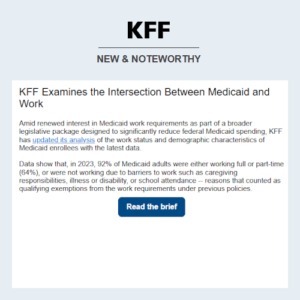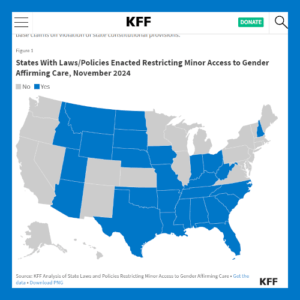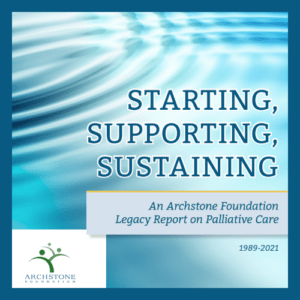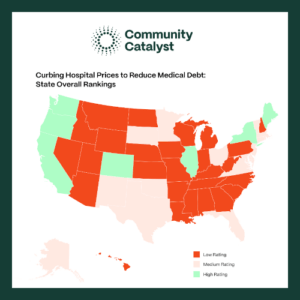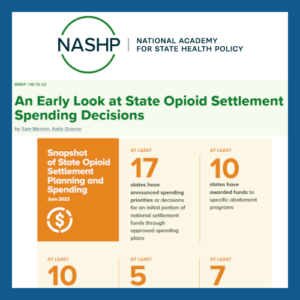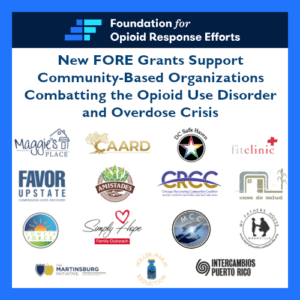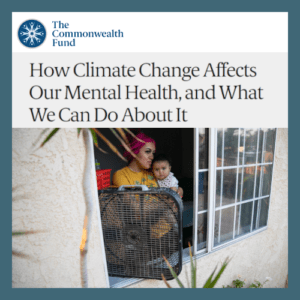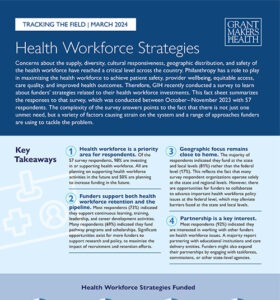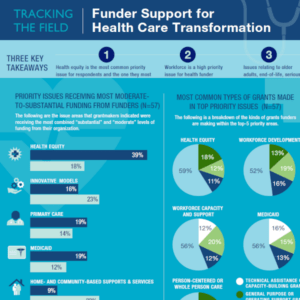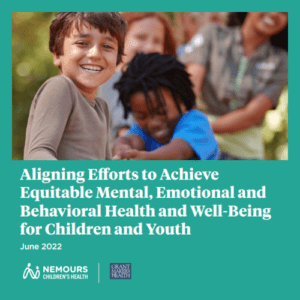Featured Resources
Data Show That The Majority of Adult Medicaid Enrollees are Working
Amid renewed interest in Medicaid work requirements as part of a broader legislative package designed to significantly reduce federal Medicaid spending, KFF has updated its analysis of the work status and demographic characteristics of Medicaid enrollees with the latest data.
Youth Access to Gender Affirming Care at the Supreme Court: What to Know
Ahead of December 4 arguments in a Supreme Court case (U.S. v. Skrmetti) challenging the constitutionality of Tennessee restrictions for gender affirming care for minors, KFF explores the background of the case and potential rulings.
Explore Access and Quality Topics
Latest Resources
Blue Cross Blue Shield of Massachusetts Foundation: July 2023
This study, commissioned in collaboration with the Health Equity Compact, aims to quantify that economic burden associated with solutions for reducing inequities in health (which require investments of time and resources for which there will always be competing priorities.)
Issue Brief on State Opioid Settlement Spending Decisions
The Foundation for Opioid Response Efforts supported the National Academy for State Health Policy in the development of an issue brief providing an early look at state opioid settlement spending decisions.
Blue Cross Blue Shield of Massachusetts Foundation: May 2023
The Blue Cross Blue Shield of Massachusetts Foundation Massachusetts released a new report, “Closing the Coverage Gaps: Reducing Health Insurance Disparities in Massachusetts.” The foundation noted that Massachusetts has been exemplary in developing health insurance coverage policies to cover its residents.
New York State Foundations Working Together to Preserve Health Insurance Coverage for Millions of New Yorkers
In March 2020, the United States declared a public health emergency and enacted historic COVID-19 relief legislation. It increased Medicaid funding to states contingent on several conditions, including a “continuous enrollment” requirement that prohibited states from terminating Medicaid enrollees’ coverage until after the public health emergency had ended. How well this worked is a rare silver lining of the pandemic: an estimated 20.2 million people gained coverage since March 2020, and the uninsured rate dropped across the country.
New FORE Grants to Combat the Overdose Crisis
The Foundation for Opioid Response Efforts (FORE) recently announced $2.2 million in grants to community-based organizations in urban and rural areas to support prevention, harm reduction, treatment, and recovery initiatives to address opioid use disorder and the overdose crisis.
Publications and Reports
2024 Survey Summary: Health Workforce Strategies
Concerns about the supply, diversity, cultural responsiveness, geographic distribution, and safety of the health workforce have reached a critical level across the country. Philanthropy has a role to play in maximizing the health workforce to achieve patient safety, provider well-being, equitable access, care quality, and improved health outcomes. Therefore, GIH recently conducted a survey to learn about funders’ strategies related to their health workforce investments.
Funder Support for Health Care Transformation
This infographic summarizes the responses to a Grantmakers In Health funder poll, conducted October 2022, on how philanthropy is supporting health care transformation efforts, especially those concerned with improving quality of life, coordinating complex care, and taking patient preferences into account.

